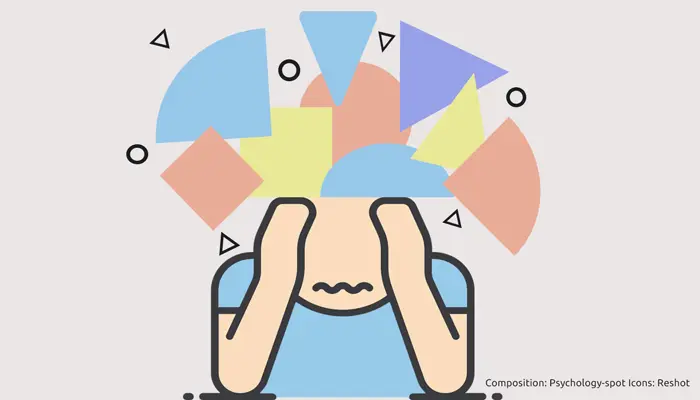
Stress, when prolonged for long periods of time, can cause considerable psychological and physical damage. Staying in a state of constant tension and apprehension will take a heavy toll on us.
Stress not only increases the risk of depression and anxiety, but also causes changes in the body that can trigger everything from heart disease to infectious diseases. Stress and inflammation are part of the main mechanism that triggers these problems.
Chronic stress forces the body to work at full speed
When we are exposed to a stressful situation occur different neurochemical changes in our body. The discharge of different neurotransmitters and hormones activates the sympathetic nervous system and the hypothalamic-pituitary-adrenal axis to allow us to respond to the threat.
In this state, levels of catecholamines, such as adrenaline and norepinephrine, skyrocket to increase heart rate and blood pressure. Thus our body prepares to fight or flee from danger. This reaction, called allostasis, is completely natural and adaptive. In fact, it is even beneficial to our survival.
However, when stress is prolonged over time, the body enters a state of sustained allostasis that leads to health problems. We must remember that there are different types of stress and they are not all negative. Acute stress can actually improve immune function, but cumulative or chronic stress leads to imbalance and inflammation.
The mechanism of stress and inflammation
A team of researchers from Carnegie Mellon University demonstrated for the first time that chronic stress affects the body’s ability to regulate inflammation, a mechanism that promotes the development and progression of different diseases.
In their first study, they recruited 276 healthy adults who were exposed to the virus that causes the common cold. The cold was used because its symptoms are not caused directly by the virus, but are a “side effect” of the inflammatory response that is triggered in the body when the immune system works to fight the infection. Therefore, the greater the body’s inflammatory response to the virus, the more likely it is that you will experience symptoms of a cold.
The participants were kept in isolation under controlled conditions, so the researchers followed them for five days for signs of infection and disease. They found that prolonged stress was associated with the inability of immune cells to respond to hormonal signals that normally regulate inflammation. As a result, people who could not regulate the inflammatory response adequately were more likely to develop a cold when exposed to the virus.
In a second study, the researchers worked with 79 healthy people, divided according to their ability to regulate the inflammatory response. Each participant was then exposed to the virus and the production of pro-inflammatory cytokines, the chemical messengers that trigger the inflammation response in the body, was monitored. On this occasion, the researchers found that those who had difficulty regulating the inflammatory response before being exposed to the virus produced more chemical messengers that induce inflammation when they were infected.
This means that “The immune system’s ability to regulate inflammation predicts who will develop a cold, but more importantly, it explains how stress can promote illness,” the researchers noted.
In practice, when we are subjected to situations of great stress, the cells of our immune system do not respond to hormonal control and, as a result, trigger a level of inflammation that promotes disease. We cannot forget that inflammation is largely regulated by cortisol, but when stress prevents this hormone from fulfilling this function, inflammation can spiral out of control.
Thus, prolonged stress alters the effectiveness of cortisol to regulate the inflammatory response, decreasing the sensitivity of the tissues to this hormone. Specifically, immune cells become insensitive to the regulatory effect of cortisol because they have been too exposed to this hormone. That explains inflammation in the body from stress, which, by the way, also affects the brain and can end up causing neurodegenerative diseases.
Sources:
Liu, Y. et. Al. (2017) Inflammation: The Common Pathway of Stress-Related Diseases. Front Hum Neurosci; 11: 316.
Cohen, S. et. Al. (2012) Chronic stress, glucocorticoid receptor resistance, inflammation, and disease risk. PNAS; 109(16): 5995-5999.
Black, P. H. (2002) Stress and the inflammatory response: a review of neurogenic inflammation. Brain Behav Immun; 16(6):622-53.



